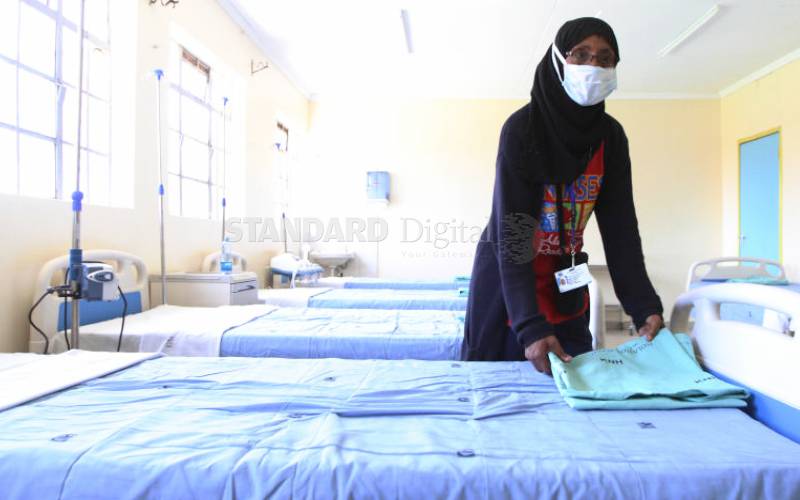×
The Standard e-Paper
Fearless, Trusted News

Nurse Abdul Aziz from the Kenyatta National Hospital makes a bed at the upgraded wing of Mbagathi Hospital in Nairobi. [Elvis Ogina, Standard]
The country’s economic growth is expected to shrink in latest projections that have, for the first time, revealed the impact of coronavirus disease on the continent.